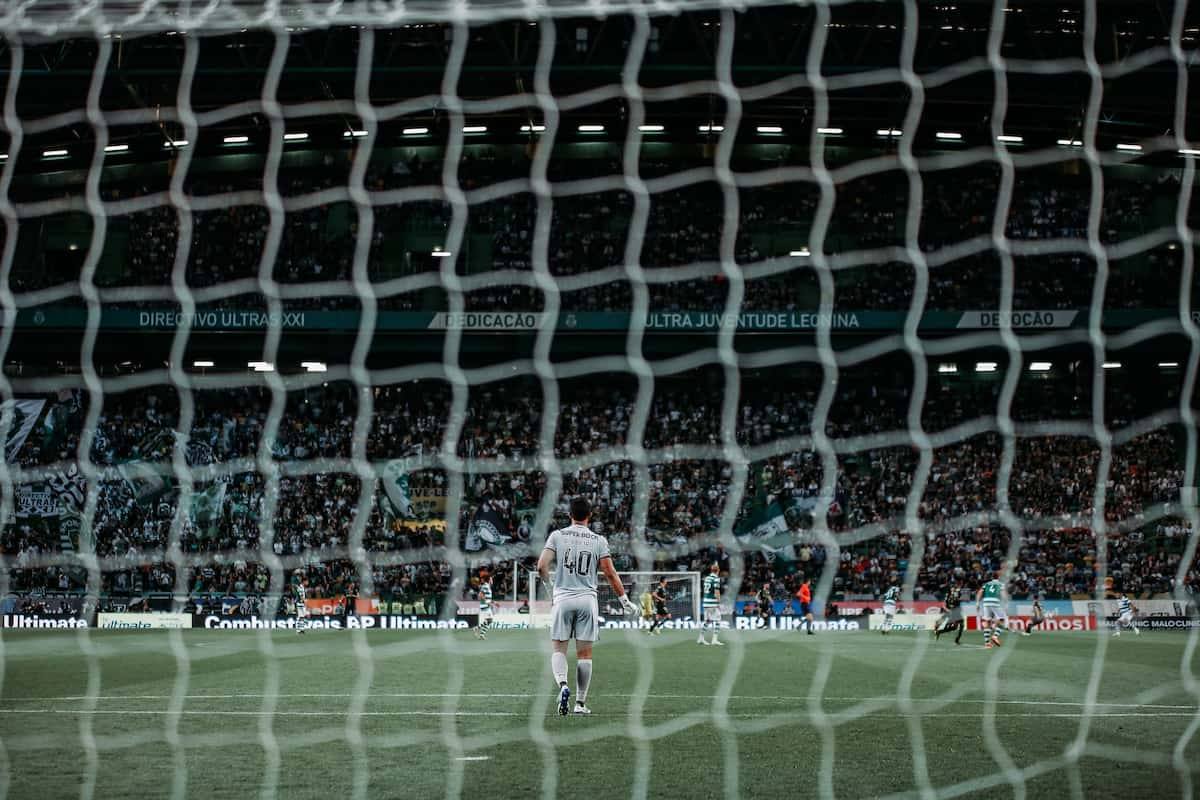What is a Clean Sheet in Football?

Table of Contents
What is a Clean Sheet in Football?
A clean sheet in football is when the opposition team is unable to score a goal during a match. Keeping a clean sheet is a great indicator that a team has a good goalkeeper and defenders.
Where Did the Term ‘Clean Sheet’ Come From?
The term ‘Clean Sheet’ originates from when football scores and reports were recorded on a sheet of paper. If the opposition was unable to score a goal during the match, your team would have kept a clean sheet, i.e. your side of the piece of paper was blank.
Is a Clean Sheet in Football Important?
Yes, a clean sheet is really important in football. Achieving a clean sheet gives teams a greater chance of winning a match, as they only need to score one goal to beat the opponent.
A clean sheet is also the main aim for the goalkeeper and defenders during a match, so if your team is able to keep one, these players will have achieved their main aim and this can be great for team morale.
The Relationship Between Clean Sheets and Goal Difference
Clean sheets can help improve a team’s goal difference. The more clean sheets a team keeps during a season, the fewer goals against (GA) will go against their name on the league table. This means that they could end up with a better goal difference, which can help them finish in a higher position if they are level on points with another side.
How to Keep a Clean Sheet in Football
Sign a Good Goalkeeper
One of the best ways to keep a clean sheet in football is signing a good goalkeeper. Goalkeepers are the most important player on the pitch when it comes to keeping the ball out of the goal, so investing in a quality goalkeeper is crucial to recording more clean sheets.
The most important skill for a goalkeeper to have in order to keep a clean sheet is good shot stopping abilities. Being able to save shots from all distances while also having the ability to parry the ball away from danger is really important.
Role of the Defenders
Another aspect of keeping a clean sheet in football is making sure each defender knows their role. If each defender knows what they should be doing both in and out of possession, as well as being able to communicate well with each other, there is a higher chance of keeping a clean sheet.
On the other hand, if defenders are unsure what their roles are and aren’t able to communicate well with each other, they’re more likely to become unorganised. This could involve falling out of shape, leaving opposition players unmarked and not keeping in a tight line, which allows attackers to make successful runs in behind. All of these scenarios accumulate to more goalscoring opportunities and lower the chance of keeping a clean sheet.
Work on Defending Set-Pieces
Across a season, many teams concede goals from set-pieces. There can be a number of reasons for this, including having a short squad of players who find it harder to compete aerially, a goalkeeper who isn’t comfortable making high claims, and poor marking tactics.
Spending time on the training pitch focusing on defending set-pieces can help a team become more confident in defending the goal in these situations. Across a season, this can significantly reduce the number of goals a team concedes and can increase the number of clean sheets that they keep.
Implement Good Tactics
Implementing good tactics for each match will also contribute to keeping more clean sheets. If ineffective football tactics are used in games, the opposition is more likely to create goalscoring opportunities, which reduces the chance of keeping a clean sheet.
Effective tactics, both in and out of possession, are required to ensure that a team’s defence is robust. If this is done successfully, the opposition will struggle to create high quality chances, which reduces their xG value and means that they are less likely to score.
The most tactical football managers tend to use more effective tactics in matches, which usually means that their side keeps more clean sheets. An example of this would be Pep Guardiola’s Manchester City side.
Develop Discipline
Defensive discipline is crucial for a team that wants to keep more clean sheets. Discipline makes sure that players don’t lose their focus in the later stages of a match. This can be really helpful if they’re defending a lead.
Being patient when making tackles is a huge part of discipline too, meaning fewer needless tackles are made. This limits the opportunities for the opposition to create goalscoring chances, which increases the likelihood of keeping a clean sheet.
Clean Sheets Records and Statistics
Which Goalkeeper Has the Most Clean Sheets Ever?
The goalkeeper with the most clean sheets ever recorded is Italian Gianluigi Buffon with 501. Buffon’s clean sheets are as follows – 322 for Juventus, 93 for Parma, 9 for Paris Saint Germain and 77 for the Italian national side.
Learn about one of Gianluigi Buffon’s red cards.
Although Buffon’s clean sheets are impressive, there have been many other goalkeepers who have recorded a staggering amount of clean sheets.
Which Goalkeeper Has the Most Premier League Clean Sheets?
Petr Čech currently holds the clean sheet record in the history of the Premier League, with 202 clean sheets. He kept 162 clean sheets playing for Chelsea and 40 clean sheets playing for Arsenal.
Learn who the top five goalkeepers are for clean sheets in Premier League history:
| Rank | Player | No. of Clean Sheets | Appearances | Clean Sheet Percentage (%) | Club(s) |
| 1 | Petr Čech | 202 | 443 | 45.60% | Chelsea (162), Arsenal (40) |
| 2 | David James | 169 | 572 | 29.55% | Liverpool (72), Portsmouth (39), Aston Villa (21), Manchester City (19), West Ham United (18) |
| 3 | Mark Schwarzer | 151 | 514 | 29.38% | Middlesbrough (92), Fulham (56), Chelsea (2), Leicester City (1) |
| 4 | David Seaman | 141 | 344 | 40.99% | Arsenal (138), Manchester City (3) |
| 5 | David de Gea | 138 | 395 | 34.94% | Manchester United (138) |
Most Premier League Clean Sheets in a Season
Czech goalkeeper Petr Čech holds the clean sheet record for most clean sheets by a Premier League goalkeeper in one season. During the 2004/05 season, he won the Golden Glove award by keeping 24 clean sheets.
Frequently Asked Questions
Does Extra-Time Affect a Clean Sheet?
Whether a football match lasts 90 minutes or 120 minutes, the clean sheet rule is the same, i.e. if a team concedes a goal within 120 minutes they will lose their clean sheet. If a match finishes 0-0 after 90 minutes but the opposition scores in extra time, the team loses the clean sheet.
What Are Clean Sheet Bonuses?
Clean sheet bonuses are clauses in football players contracts that reward a player with a financial bonus if the team keeps a clean sheet that week. These clauses are usually put in the contracts of goalkeepers and defenders, as these are the players who are most concerned with keeping clean sheets.
Does a Penalty Shoot-Out Affect a Clean Sheet?
No, a penalty shoot-out is treated separately to the rest of a football match, so it doesn’t affect a goalkeeper’s clean sheet. For example, if a match finishes 0-0 and goes to penalties, the goalkeeper will still keep the clean sheet.
Is It Only Goalkeepers Who Are Credited With Clean Sheets?
In terms of football statistics, clean sheets are only really credited to goalkeepers. Although defenders are a major part of why a team will keep a clean sheet, they are more associated with statistics such as yellow cards, red cards, assists and goals.
This is not to be confused with fantasy football games, where defenders are usually rewarded with clean sheet points.Do You Get Any Extra Points for a Clean Sheet?
Football teams don’t receive any extra points when they achieve a clean sheet in a match. They’ll still only receive three points for a win and one point for a draw, whether the opponent scores zero goals or not.






